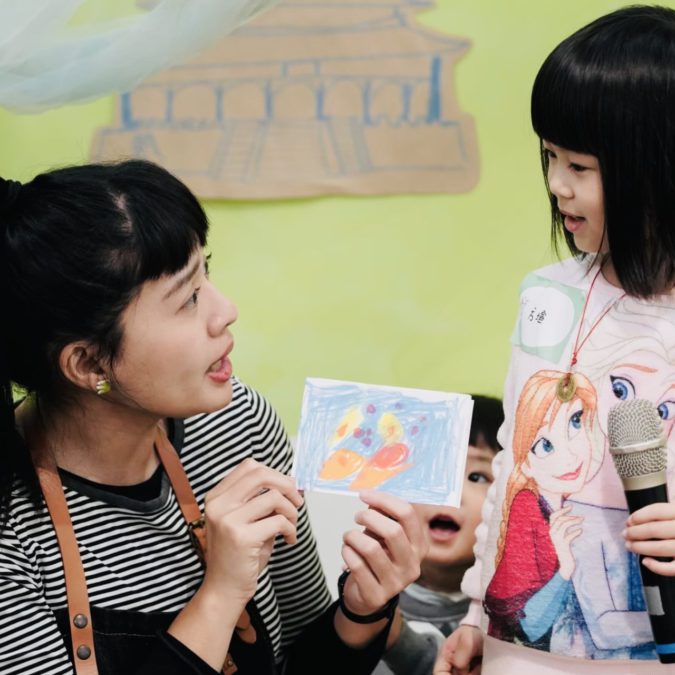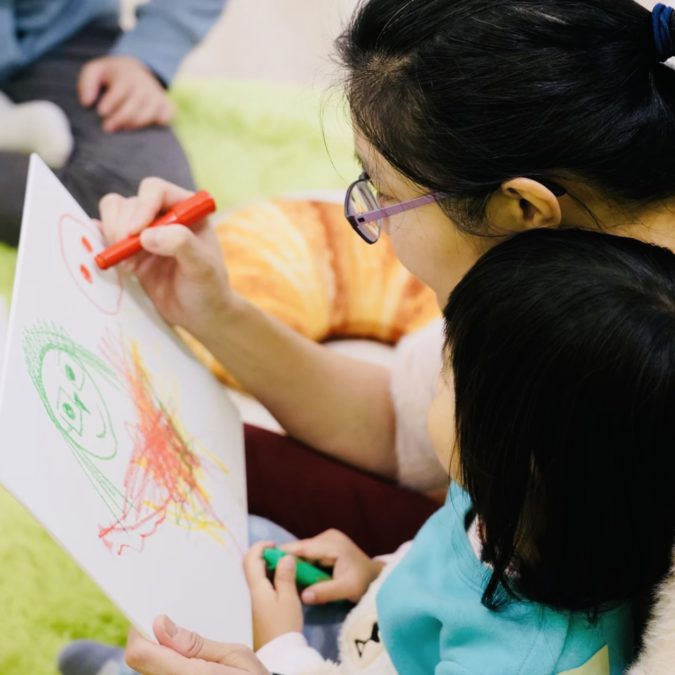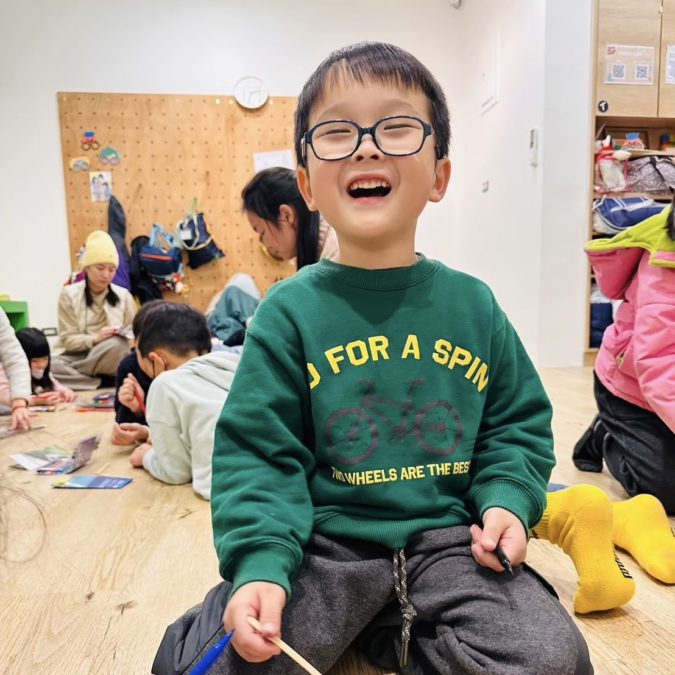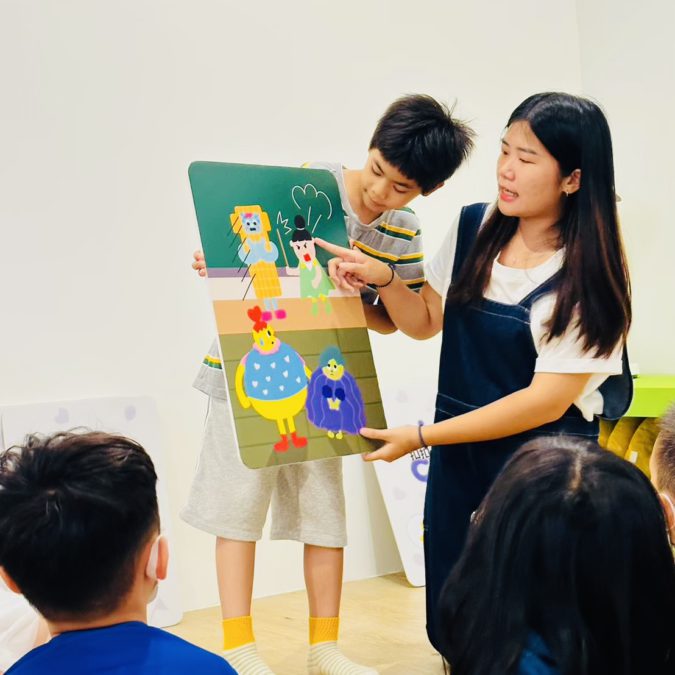Kuen Cheng Student Tragedy: A Guide to Recognize a Child’s Emotional Crisis? 3 Must-Know Tips for Parent.

“Child, you are incredibly brave, but you directed your courage in the wrong place!” This heartbreaking cry from a father grieving the loss of his daughter to a fall leaves us shattered. Such tragedies often occur during crucial turning points in a child’s development, particularly when they face sudden physical, psychological, and environmental pressures. In these moments, the support from parents and society becomes vital.
Children’s Major Transition Periods: Kindergarten to Primary, Primary to Middle, and High School to University

Children go through several important transition periods during their growth:
- From Kindergarten to Primary School: This is a time when children enter a rapid cognitive development phase, shifting from dependence on parents to establishing more connections with their peers.
- From Primary School to Secondary School: At this stage, physical changes brought on by puberty begin to appear. Children start to focus on their social status and maintaining friendships while facing a noticeable increase in academic difficulty. During this exploration of self, adolescents often experience anxiety and uncertainty.
- From High School to University: This is a critical period of transition from adolescence to adulthood. Children must deal with academic pressures, learn to manage their daily lives, and consider future career paths, which adds to their stress and decision-making anxiety.
Three Essential Things Parents Must Grasp During Their Child’s Transition Periods
The First Thing: Be Aware of Your Child’s Emotional Changes
Dear Parents, just as we exhibit changes in behavior when feeling stressed—becoming less talkative or experiencing anxiety and irritability—children also display similar changes during their “transitional phases.” Here are some behavioral changes parents can observe in their children based on their own experiences:

Change 1: Changes in Language Expression
Remember how we express our stress with phrases like “I’m so tired” or “No one understands me”? Children might do the same, using similar words to convey their pressure or confusion. It’s important to listen closely to everything they say to uncover the anxiety and helplessness they may be expressing.
Change 2: Emotional Fluctuations
Have you ever experienced sudden irritability or mood swings? This can be a response to overwhelming stress. Children can experience the same thing; if they become easily angered or overreact to minor issues, it’s a sign of emotional challenges that parents should pay attention to.
Change 3: Changes in Social Interaction
When we’re under stress, we might withdraw from social interactions and avoid reaching out to friends. Children can exhibit this behavior too. If they start distancing themselves from friends or relying on only one specific person, it may indicate they are struggling emotionally.
Change 4: Changes in Focus and Interests
When we feel stressed, we often lose interest in activities we usually enjoy. Similarly, a child’s shift in focus and interest can be a warning sign; if they no longer engage in activities they once loved, it may reflect the internal pressure they’re facing.
Change 5: Physical Symptoms
Have you ever felt physical discomfort due to stress, like headaches or stomach aches? Children’s emotional issues can manifest physically as well. If they frequently complain about physical ailments without a clear medical cause, it’s likely that emotional stress is at play.
Change 6: Changes in Creative or Play Content
When we’re stressed, we might turn to journaling or creative outlets to cope. Children often express their inner worlds through drawing, writing, or play. Observing their creative work can provide insight into their deeper feelings and experiences.
Children's Art and Emotions Workshop >> Learn More
Second Thing: Maintain Effective Communication with Your Child
Dear Parents, when someone asks you, “How was your day at work?” how do you usually respond? If your day was uneventful or there wasn’t anything special happening, you might simply say, “It was okay,” “Just normal,” or “Nothing much.” Such conversations can easily come to a halt because the question is too vague, leaving us unsure of how to respond in detail.
Similarly, when you ask your child, “How was school today?” they might reply with a short “Okay” or “Nothing special.” This doesn’t mean they don’t want to share; rather, the question is too broad, making it hard for them to express themselves specifically.

So, when you want to inquire about your child’s school life, try asking specific questions from the following four aspects: peer relationships, teacher-student interactions, academic adaptation, and school behavior norms. Such questions are more likely to engage your child in the conversation and encourage them to share more details.

Third Thing: Provide Appropriate Support When Your Child is Vulnerable
When we feel vulnerable, we often doubt ourselves and may even experience a drop in self-worth. In such moments, hearing someone say, “How can you not even do this right?” can further damage our confidence. Similarly, when children feel vulnerable, we must avoid criticizing them. Phrases like “Can’t you do this on your own?” will only lead them to doubt themselves more and feel helpless.

So, how can parents support their children?
The key is to create a nurturing family environment where children feel they can rely on home no matter what difficulties they face. This allows them to express their emotions without the fear of being judged. You can convey your support and love through warm words, as these simple phrases help children feel understood and cared for by their parents:

Parents' Top Choice: Social Emotional Learning for Kids >> Learn More
Social-Emotional Learning (SEL): Early Emotional Development – The Key to Children’s Growth
While parental support and care are crucial during a child’s vulnerable moments, it’s essential to recognize that emotional management and social skills are not solely the family’s responsibility but core competencies for a child’s development. Social emotions play a pivotal role in a child’s growth, directly impacting academic performance and determining their ability to form healthy relationships, manage emotional impulses, and make rational decisions. Consequently, social-emotional learning (SEL) has gained increasing attention and importance in recent years.

Guiding children to recognize, express, and understand their emotions from an early age helps them grasp the close link between feelings and behaviors, laying a solid foundation for facing future challenges. Research from the Harvard Center on Child Development indicates that children can express complex emotions, such as guilt and regret, as early as ages 2 to 3. This period of high brain plasticity is crucial for developing emotional skills. Therefore, early cultivation of social-emotional abilities not only enhances academic performance but also establishes a vital foundation for long-term development.
Where can I learn about Social Emotional Learning (SEL)?
Many international organizations are investing in emotional education, such as CASEL, which implements the concept of Social Emotional Learning (SEL) both in and out of the classroom to create an ecosystem where all children can access SEL and high-quality education. Regarding detailed SEL teaching methods, CASEL proposed the SAFE criteria:
- Sequenced (S): The curriculum should be designed to progress from simple to complex, gradually adjusting difficulty levels, and ensuring effective learning through repeated reinforcement.
- Active (A): Engage children both inside and outside the classroom to feel the impact of SEL and actively practice it in their daily lives.
- Focused (F): Each SEL session should be highly focused and engaged to enhance learning outcomes.
- Explicit (E): Clearly explain to children the benefits of emotional education and how it can be applied in various situations.
The Taiwanese emotional education brand “SKids” uses card games to transform common situations in families, schools, and public spaces into emotional cards, which are then applied in classroom teaching to create a cohesive curriculum. In addition to Taiwan, “SKids” has expanded to Kuala Lumpur as “SKids.MY,” helping children rediscover themselves, build confidence, and actively express their inner feelings through art therapy. Exclusive emotional practice classes for children allow them to explore various aspects of emotions, learn to stabilize their feelings better, and cultivate a strong heart to face future challenges!








